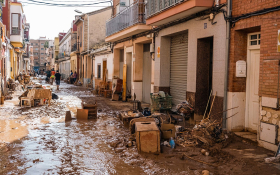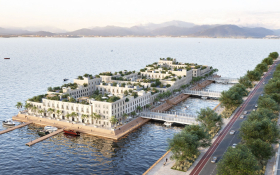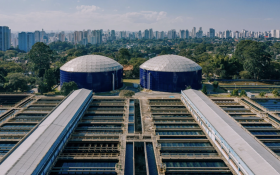MobiWater reports improved recharge of water tanks due to smart monitoring in Kibera, Kenya
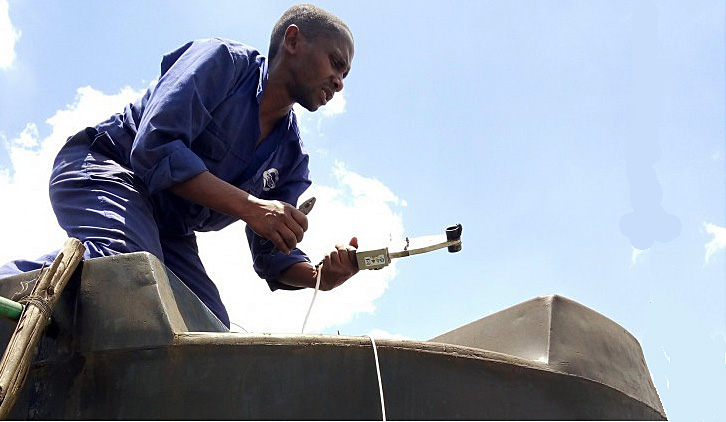
"We've seen alerts from our system that have been used by the water point owners to improve revenue accountability. In some water points we've seen up to 30 percent increased water consistency and faster recharge of the tanks when they run out of water". This reports Kevin Gacheru in his update on the Maji Mkononi project in Kibera, Africa's largest informal settlement in Nairobi, Kenya.
Gacheru is the founder of MobiWater, a firm that developed a smart monitoring system to collect data on water levels in tanks at community led water points.
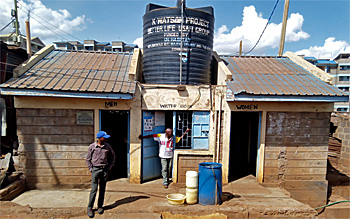 MobiWater collects storage data from 38 water point that is made available through mobile phones to operators of the water tanks, as well as the community that can see if a tank is empty or not before leaving home.
MobiWater collects storage data from 38 water point that is made available through mobile phones to operators of the water tanks, as well as the community that can see if a tank is empty or not before leaving home.
Mobile phones
The data is made availably to the community by mobile phone. People in the community can see if a tank is empty or not.
"We've had to make various changes to our initial solution and tested various iterations of our systems with the water point operators, working hand-in-hand to build a customer-centric solution that addresses their needs", Gacheru continues in his blog.
Alerts for low levels
MobiWater runs the monitoring system for a year now and experiences that water point operators can learn from them through community-led conversations at focus group meetings.
The firm installed real-time water monitoring sensors in local water point tanks which allowed the operators to monitor their available stored water in their tanks and alerts them via their mobile phone when water levels exceed their thresholds.
Gacheru writes: "Currently, we are working with 38 water points, across 4 different wards in the informal settlement, among them being privately owned water points, NGO led water points, and also water points led by communities or youth."
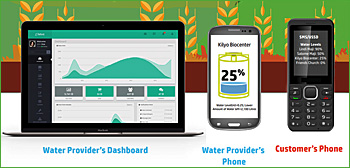 Realtime monitoring of water levels of water tanks has led to faster recharging by operators.
Realtime monitoring of water levels of water tanks has led to faster recharging by operators.
Pricing models
At the moment, his firm is discussing repayment plans for the system with the with the water point operators. These are set to begin in January. "I'm glad to say it's going on well. We came up with three structured pricing models which we are currently discussing with the water point owners."
The Maji Mkononi project is supported by Via Water, a programme set up by several Dutch water-related organisations and the Dutch government, to solve the water crises in African cities. The programma has an emphasis on the creation of sustainable solutions that are implemented by local people.
Via Water currently holds a portfolio of almost 60 projects in 8 African countries, being Benin, Ethiopia, Ghana, Kenya, Mali, Mozambique, Rwanda and Senegal.
Read the original blog by Kelvin Gacheru on the website of Via Water.
(Photos: MobiWater/Via Water)
Read more on this website
● Stockholm World Water Week 2018: Latest generation water-related apps for small farmers shown at African Spatial Delight, 4 September 2018
● Eight winning African entrepreneurs to pilot their water innovative ideas, 5 December 2016
● Via Water supports three Kenyan water start-ups to roll out their business plans, 18 March 2016
● Expertise: Water for all
● Country: Kenya
More information
Via Water
The Hague, the Netherlands
+31 70 720 0870
www.viawater.nl
MobiWater
Nairobi, Kenya
+254 732 002 307
www.techwatersolutions.com
